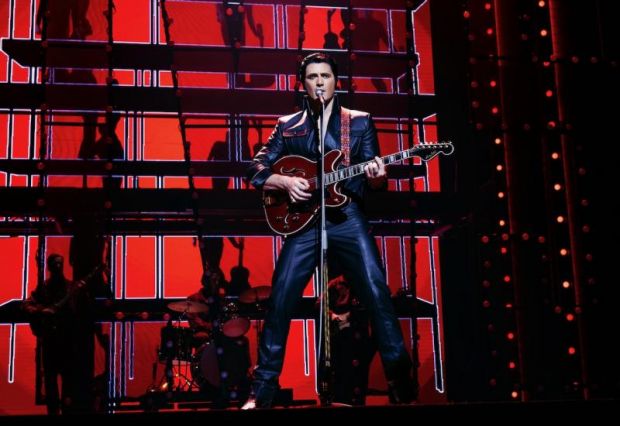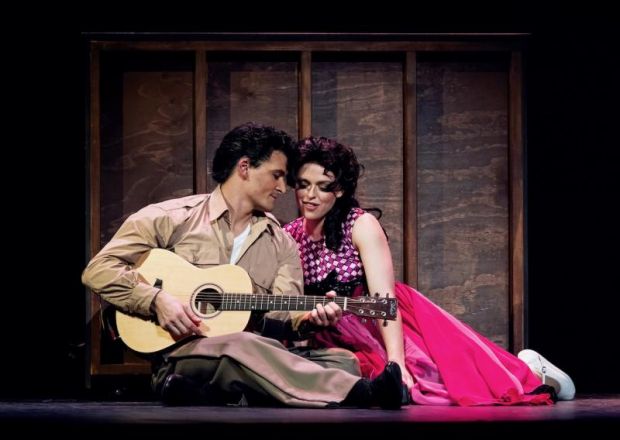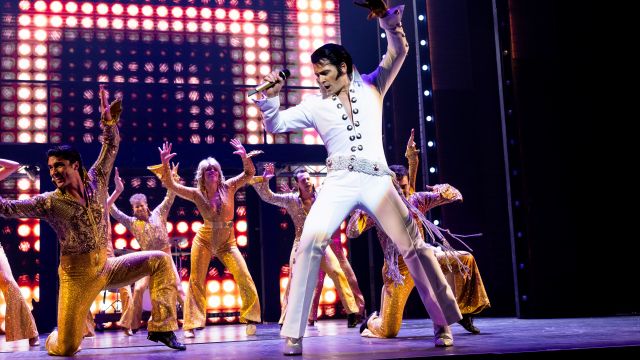Elvis: A Musical Revolution
Elvis of course never really left the building; with Baz Luhrmann’s film and now the premiere of Elvis: A Musical Revolution he’s having yet another comeback.
With snatches of some 40 great hits from the King of Rock’n’Roll, this bio-musical wins from the start, but it’s much more than a juke box show with slots for songs.
David Venn’s production artfully weaves hit vignettes into a revealing, dramatic narrative from Elvis growing up poor in a coloured Mississippi neighbourhood, to learning the US reality of race in the 1950’s, to forging the sounds of country, gospel and defiant black rhythms of celebration, and at barely thirty achieving global fame and wealth, but also a troubled domesticity and gnawing anxieties.

Rob Mallett is a powerhouse mover and shaker as Elvis, with all the right hip wiggles, splayed legs and swinging arms, but also with Elvis’ early naiveite, charm and those decent virtues of his Mum, Gladys (a convincing Noni McCallum). As Gladys lies dying, Elvis, head in her lap, tenderly sings Peace in the Valley. Mallett’s has Elvis’ cool drawl and much of his mighty and sensitive singing.
Book writers, Americans Sean Cercone and David Abbinanti, finely exploit the presence of Kid Elvis (a pitch perfect Rhys James Hankey, one of four boys alternating in the role), acting throughout as a motivational touchstone to Elvis through his challenges.
The biggest headache is the relentless pressures from his rather 2D manager, Colonel Parker (Ian Stenlake), pushing him into bad money-making movies; another becomes his wife Priscilla (Annie Chiswell) and earlier, a teenage girlfriend Pixie (Sienna Embrey), and then another problem back at Gracelands is his exploitative widowed Dad (Matt Heyward).
And so jumping in time, we leap through key appropriate moments linked to great songs, with a large ensemble over acting their socks off and arms thrown high kicking through Michael Ralph’s basic rock‘n’roll choreography.

Segues between scenes and action are sometimes clumsy and the pace sags in places, but Alister Smith’s direction wins us with the unbeatable songs, the energy and this thoughtful portrait of Elvis and his world. It’s a black and white world back then and such reality footage is well framed in Dan Potra’s gritty design of verticals and horizontals outlined in Broadway globes.
Martin Portus
Photographer: Ken Leanfore
Subscribe to our E-Newsletter, buy our latest print edition or find a Performing Arts book at Book Nook.

